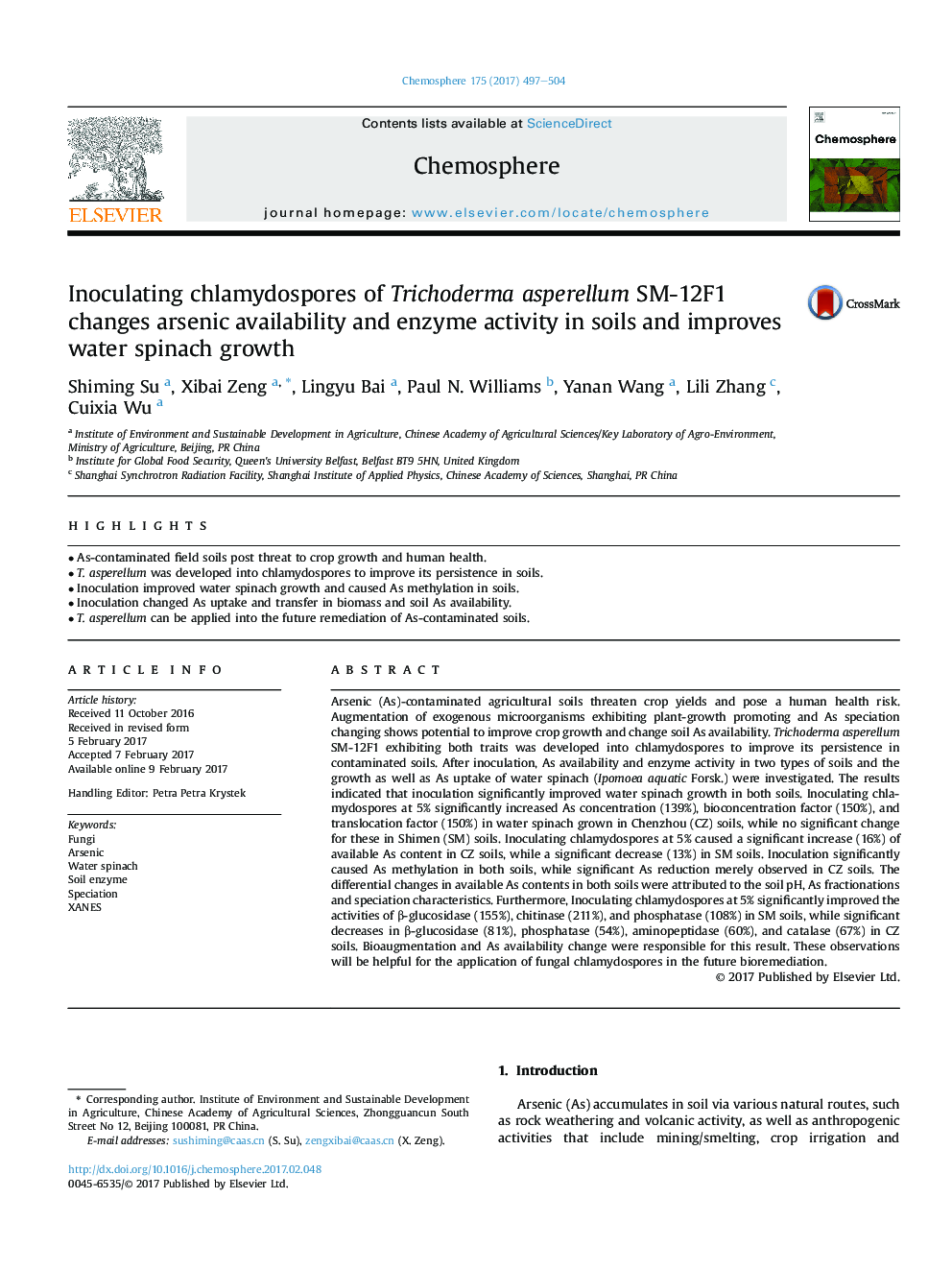| کد مقاله | کد نشریه | سال انتشار | مقاله انگلیسی | نسخه تمام متن |
|---|---|---|---|---|
| 5746523 | 1618796 | 2017 | 8 صفحه PDF | دانلود رایگان |

- As-contaminated field soils post threat to crop growth and human health.
- T. asperellum was developed into chlamydospores to improve its persistence in soils.
- Inoculation improved water spinach growth and caused As methylation in soils.
- Inoculation changed As uptake and transfer in biomass and soil As availability.
- T. asperellum can be applied into the future remediation of As-contaminated soils.
Arsenic (As)-contaminated agricultural soils threaten crop yields and pose a human health risk. Augmentation of exogenous microorganisms exhibiting plant-growth promoting and As speciation changing shows potential to improve crop growth and change soil As availability. Trichoderma asperellum SM-12F1 exhibiting both traits was developed into chlamydospores to improve its persistence in contaminated soils. After inoculation, As availability and enzyme activity in two types of soils and the growth as well as As uptake of water spinach (Ipomoea aquatic Forsk.) were investigated. The results indicated that inoculation significantly improved water spinach growth in both soils. Inoculating chlamydospores at 5% significantly increased As concentration (139%), bioconcentration factor (150%), and translocation factor (150%) in water spinach grown in Chenzhou (CZ) soils, while no significant change for these in Shimen (SM) soils. Inoculating chlamydospores at 5% caused a significant increase (16%) of available As content in CZ soils, while a significant decrease (13%) in SM soils. Inoculation significantly caused As methylation in both soils, while significant As reduction merely observed in CZ soils. The differential changes in available As contents in both soils were attributed to the soil pH, As fractionations and speciation characteristics. Furthermore, Inoculating chlamydospores at 5% significantly improved the activities of β-glucosidase (155%), chitinase (211%), and phosphatase (108%) in SM soils, while significant decreases in β-glucosidase (81%), phosphatase (54%), aminopeptidase (60%), and catalase (67%) in CZ soils. Bioaugmentation and As availability change were responsible for this result. These observations will be helpful for the application of fungal chlamydospores in the future bioremediation.
Journal: Chemosphere - Volume 175, May 2017, Pages 497-504